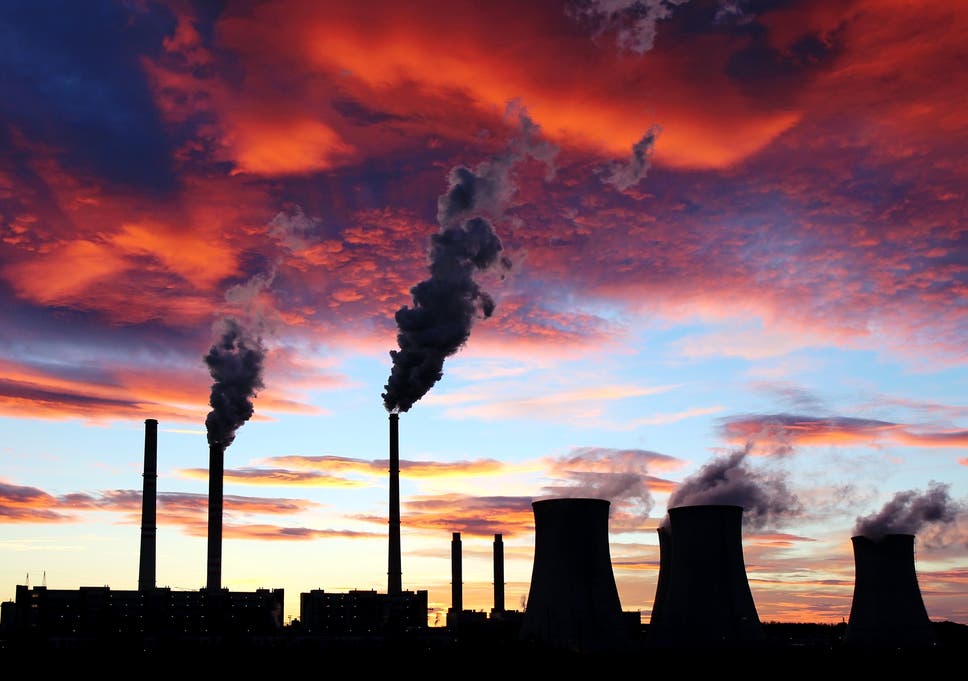
Britain is on course to pass an energy milestone as it reaches two months of coal-free power generation on Wednesday – the longest period the country has gone without using the fossil fuel since the industrial revolution.
The new record is due in part to the coronavirus crisis, as the halting of manufacturing and increased levels of homeworking have seen demand for electricity plummet by an average of 15 to 20 per cent.
But it also comes as renewable energy sources have contributed more than ever to the power grid. This is due to growing numbers of facilities coming online, combined with sunny and windy weather this spring.
Just 10 years ago, coal-fired power stations contributed up to 40 per cent of Britain’s energy, and as recently as 2015, on many days of the year, coal contributed more than 50 per cent of the power used by the grid. It still made up 25 per cent of the total power mix in 2016, according to records kept by Drax Electric Insights.
Doug Parr, chief scientist at Greenpeace UK, told The Independent: “The rapid decline in such a polluting fuel is truly cause to celebrate. This achievement would once have been unimaginable but the UK rightly took the chance to be a world leader in phasing out coal.
“That’s a lesson we must take with us as we seek to build a new economy when moving forward from the pandemic. There are plenty of other sectors where a green recovery offers us the chance to show similar leadership whilst creating jobs and truly tackling the climate emergency.”
In recent weeks, solar has provided up to 10 per cent of the UK’s power, and wind more than 48 per cent at its peak in early April, around the time the coal power stations were brought offline.
The first coal-free day was recorded in 2017 and, until this month’s record, the previous longest period without coal was in May 2019 when coal power contributed nothing to the grid for two weeks.
Overall, coal contributed just 2.1 per cent of the country’s total power mix in 2019.
The coal-free run indicates the UK will have little problem abandoning the fuel as a power-generation source altogether by the 2024 deadline, at which point any remaining coal power stations must come offline.
The country remains highly dependent on gas, however, another fossil fuel, which has consistently contributed around a third of the power to the grid during the coal-free period.
However, the make-up of the energy mix is changing fast. So far this year, renewables have generated more power than all fossil fuels put together.
Jess Ralston, analyst at the Energy and Climate Intelligence Unit, told The Independent: “Yet another record-breaking coal-free run in Britain highlights the fact that the fuel is simply not needed in a modern energy system. At the same time, the surge in renewable generation and extensive plans to expand the nation’s fleet of cheap and clean energy sources show that there will only be one direction from here.
“Recent tests of an increasingly flexible energy system during sunny bank holidays in lockdown, all of which have been dealt with without issue, show that the grid is ready to move quicker than many thought possible. The question is now whether policymakers keep pace with this to encourage further investment into clean energy sources.”
She added: “A focus on new technology, such as batteries, as the country recovers from the current economic shock will only accelerate these long-term trends and will see us move past the end of coal and begin to look to the end of reliance on other fossil fuels.”
There are just three coal-fired power plants left in the UK, with the Drax coal power station in Yorkshire due to close in March 2021 and indications the others could shut before the 2024 deadline.
Green Party energy spokesperson Andrew Cooper told The Independent: “This is clearly good news for the UK but it is only one step in the right direction.
“Getting rid of coal is certainly part of the solution to tackling climate change but there is still a long way to go and we have not seen a clear plan from the government of how it intends to move things forward.
“We still get a large amount of electricity by burning gas, so we must see action to swiftly reduce the amount of energy we generate from this fossil fuel.
“We also need to see much more action being taken to promote renewable energy through further investment in solar and policies to support onshore wind.”
He added: “Finally, there is also a question around the wood pellets Drax power plant has been using as a replacement to coal. The power plant should provide robust proof that the millions of tons of wood pellets it uses are from sustainable sources.”
Earlier this month, the National Grid was among signatories to a letter calling on the government to implement a green recovery from the coronavirus crisis and meet its legally binding net zero emissions targets.
National Grid chief executive John Pettigrew said: “We’ve estimated that the energy sector alone will need hundreds of thousands of new recruits as we work towards net zero and believe that an economic recovery with climate action at its heart will be key to unlocking these opportunities.”







